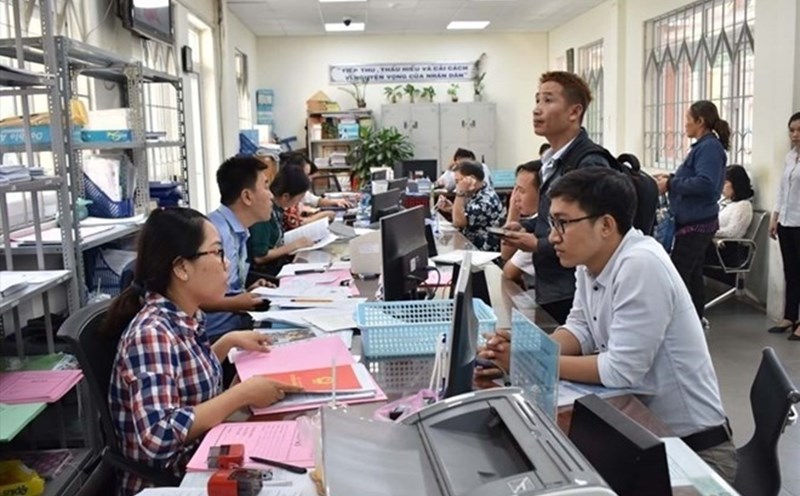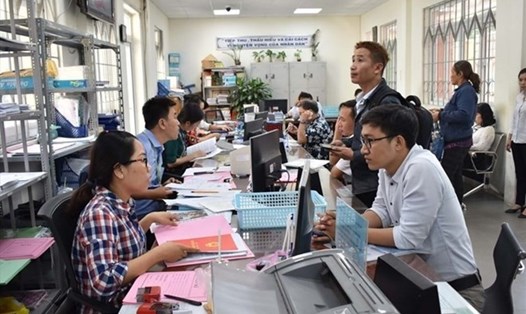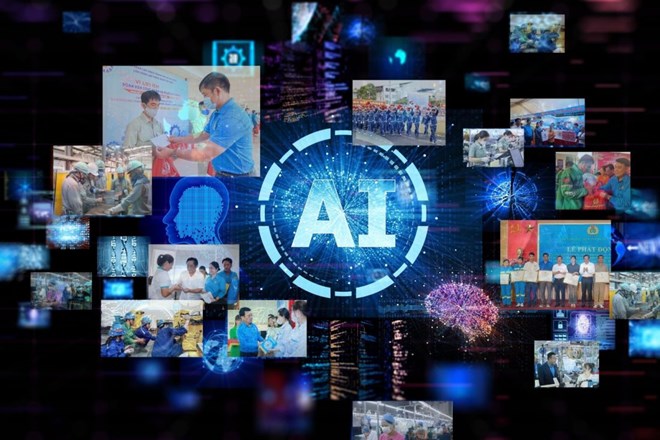
MC: Ladies and gentlemen, after 1 hour and 30 minutes of discussion with many open and in-depth opinions with the two guests, we have clearly seen the impact of AI on the job and labor market.
We hope that the content of the seminar has provided useful information to employees and State management agencies, and at the same time partly answered employees' questions and concerns related to digital technology, AI, etc.
Sincerely thank Mr. Ha Anh Tuan and Mr. Vu Quang Thanh for attending the seminar. Thank you to the audience for watching.
The talk show of Lao Dong Newspaper should stop here. See you again in the next programs.
MC: Mr. Ha Anh Tuan, what experience in AI can we take advantage of to deploy right in Vietnam?
Mr. Ha Anh Tuan: We update quite quickly on AI.
We are only about 6 months behind the world.
However, the use and application is clearly decentralized: Many businesses apply well, immediately putting it into their products. The rest, seeing them as expensive and difficult to use, I don't dare to use them. The Vietnamese business group did not dare to use it quite popularly.
Vietnam should also apply packaged solutions, instead of research and testing, which will be very expensive. We apply proven solutions to approach foreign qualifications.
Access, use, and transfer are processes that should be implemented immediately. After that, we can study replacements if we have enough capacity.
MC: In short, is AI really "terrifying" to workers and the labor market, Mr. and Mrs. labor?
Mr. Ha Anh Tuan: It is "terrifying", but not scary.
If not upgraded, the chance of "survival" for workers will not be high, they will do work for profit, and will be pushed down.
If you do well, study well, have a deep access to AI, have better job opportunities, and make life easier.
Thus, for those who do not have access to AI, it will be very difficult in a few years.
We also don't need to go too fast but go calmly, going is definitely much better.
MC: Dear guests, how should IT and AI training for middle-aged workers be implemented?
Mr. Ha Anh Tuan: There should be solutions for businesses such as telecommunications companies, household appliance companies... to directly apply to workers.
For example, the elderly have many supporting smart devices. Enterprises can study and design solutions for digital education for middle-aged workers; participating enterprises also need to receive policy support, financial incentives, etc.
Regarding training, it should be applied in the form of following products, practical daily applications also help middle-aged workers access faster, deeper in technology, AI...
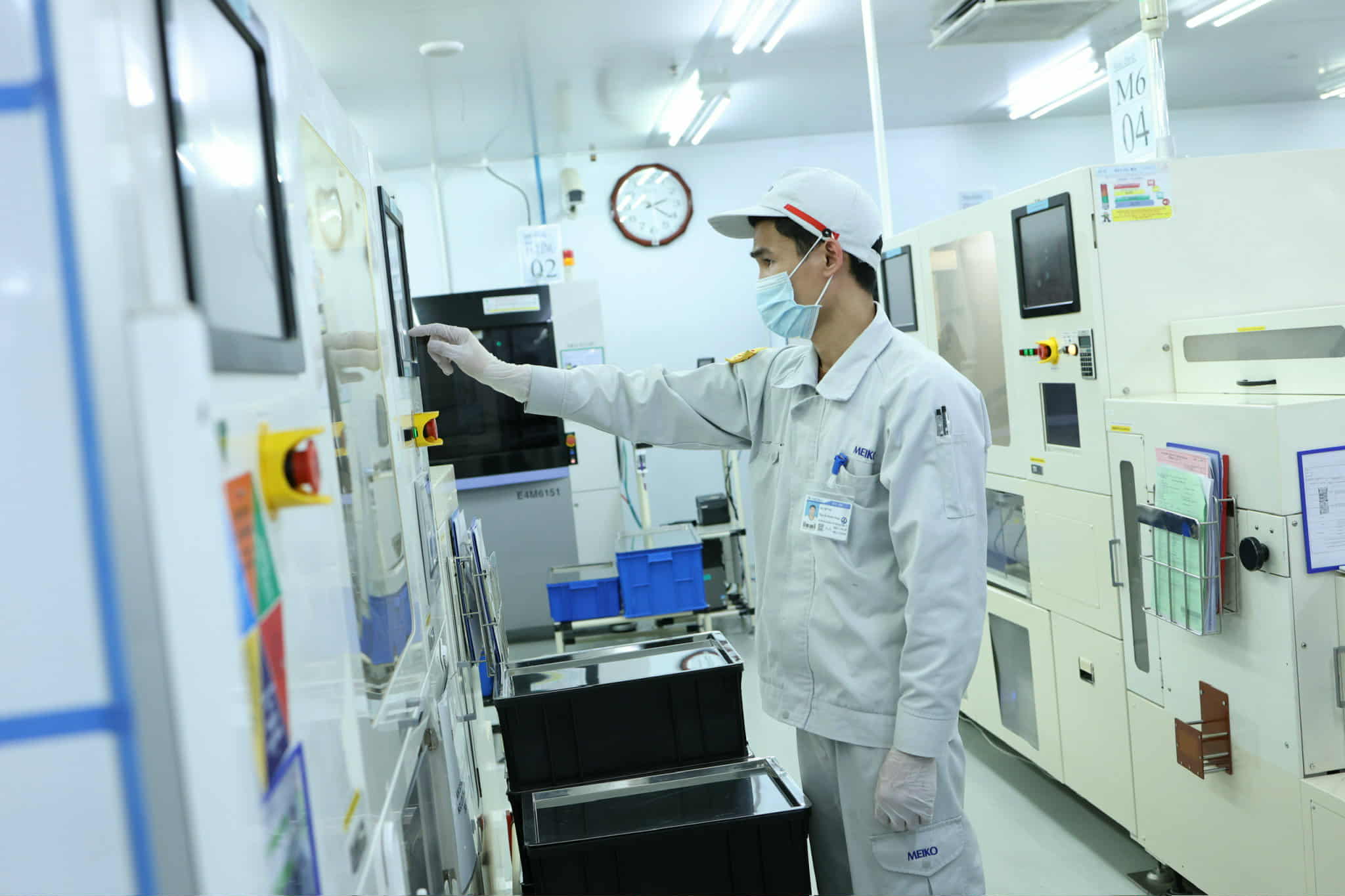
Job opportunities for middle-aged and elderly workers
Mr. Vu Quang Thanh - Deputy Director of Hanoi Employment Service Center: Job opportunities and challenges are divided equally among all groups.
For middle-aged and elderly workers, it is more difficult. They have many years of experience, and their application of AI is limited. The next job requires the application of digital skills. Employment opportunities for them are still available, but in my opinion, there must be specific research to equip AI suitable for the middle-aged and elderly, helping them approach better. They need time to get there.
Therefore, there must be products that are suitable for their work, professional position, and age segment so that they can access and quickly apply to new job positions. There needs to be specific scientific research on this content and propose solutions suitable for each " age segment" for this group.
MC: The revised Law on Employment does not mention much about AI and the labor group being strongly affected by AI. What do you think about this content?
Mr. Ha Anh Tuan: The law can add clearer provisions and content related to AI, for example, vocational training centers are invested in upgrading AI to connect needs more closely.
The story is related to supporting the workforce to use AI; workers know AI skills and need to standardize, towards pho thonglization as the certificates previously applied when recruiting workers (technology, English...).
This financial support for workers to improve their skills will contribute to promoting the labor market. Employees should also invest in AI soon.
Mr. Vu Quang Thanh - Deputy Director of Hanoi Employment Service Center: The Employment Service Center is a unit implementing the Employment Law policy. The Law on Employment has not mentioned the orientation that in the coming time, AI will be affected, including businesses and workers. Therefore, the Law on Employment can be added to the labor market information system with specific chapters, sections, standards, and criteria for evaluating AI application; supporting workers in training and unemployment insurance policies so that workers have a clearer orientation so that if they are unemployed, they can soon return to the labor market.
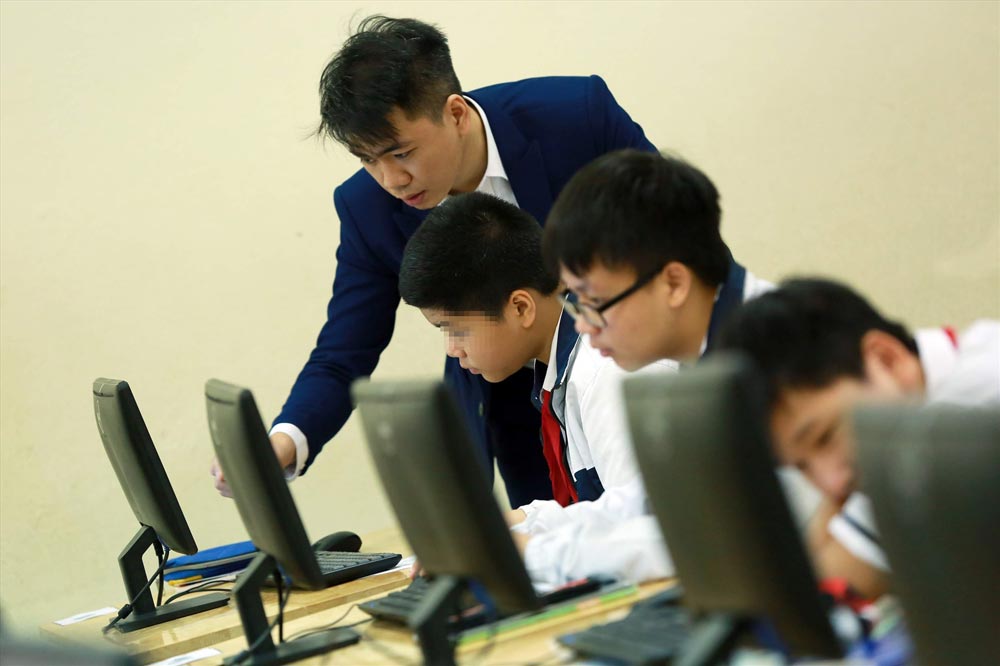
MC: As for Mr. Ha Anh Tuan, with your perspective, how will job-connecting centers apply AI to improve operational efficiency?
Mr. Ha Anh Tuan: There are 3 jobs that can apply AI, but it is necessary to pay attention to upgrading IT hardware first.
3 built-in apps include:
The forecast table on the labor market, occupations, and data for workers when applying for university can also be looked up to choose a major and career orientation. Parents can also accompany their children.
Data related to which industry needs which skills for workers to upgrade. For example, what skills are needed in the marketing industry to achieve the salary level... We must provide data to replace private companies. In the future, there will be a forecast information portal, industry data... Analysis, classification, synthesis of records... for AI to classify, evaluate, and suggest. There should be an AI solution to check your CV again, avoid being short- speaking and exaggerating about your ability. When AI evaluates, businesses easily select applications and candidates.
detecting labor supply and demand helps both sides to work hard with an automatic connection system. AI can understand the "taste" of both businesses and workers to suggest good, correct, and suitable documents.
Ensuring the above 3 contents, the role of the employment service center will be enhanced, much better and create suitability. Suitability is the most important thing in the job market.
MC: Experts say that, not only applying technology, these job service centers also have to update trends, even create a recruitment map for each industry, field... to affirm their role. Is this difficult, Mr. Thanh?
Mr. Vu Quang Thanh - Deputy Director of Hanoi Employment Service Center: The center follows the general direction of the city, under the Department of Home Affairs, including activities such as supporting job seekers through the website, portal, and online interviews. Updating trends, building recruitment maps... with the center is not only difficult in terms of professional operations, but also difficult in terms of database concentration. To build a recruitment map in each field of expertise, there must be a quality database, collecting new data to ensure a good enough ecosystem of job positions, thereby building a recruitment map for different job positions.
In addition, when there is a database, there must be a solid hardware platform, the staff qualifications must be improved, the work of analysis, orientation, and market forecasting must be good. All must have appropriate investment to meet the requirements.
MC: Mr. Ha Anh Tuan, many trained and qualified workers are overwhelmed when approaching AI. As a training unit in this field, what advice do you have for employees and the enterprise itself? Where should they start?
Mr. Ha Anh Tuan: accurate.
When training, some people are a little faster, some people do not know anything. It is very difficult for them to change their thinking.
Many people are overwhelmed by too much software, including many scam software.
The fear of being replaced and fired is also common.
We should train our thinking first, so that workers can consider AI as their human brain, their assistant brain. Instead of our brain having to remember many things, we have backup memory, helping us solve work, process data... better.
In businesses, when training new employees, old knowledge accumulated in AI, new employees only need to insert it to learn without having to explain to each person, without spending a lot of time and effort to retrain.
Training aims for each employee to have a brain to help accompany. That is personal data, each person uses it for themselves and most effectively.
Thus, AI will be a true AI assistant - this is training.
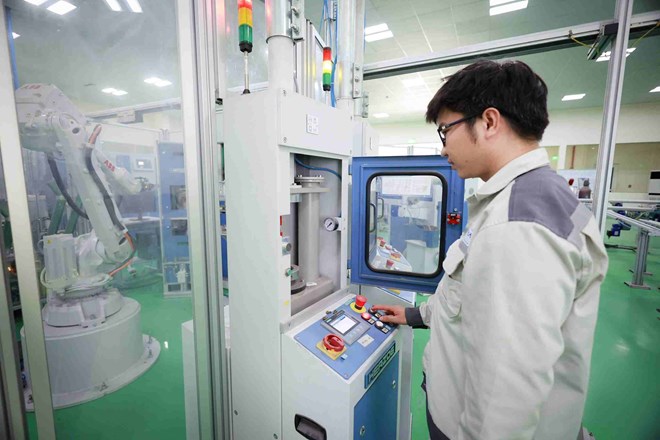
MC: The revised Law on Employment, effective from January 1, 2026, increases the support regime for workers receiving unemployment insurance benefits when vocational training. Mr. Thanh, do you think we should give knowledge about AI, digital technology... to this group to learn?
Mr. Vu Quang Thanh - Deputy Director of Hanoi Employment Service Center: The current labor market is changing rapidly, many simple jobs are at risk of disappearing due to automation and artificial intelligence, while industries related to data, e-commerce, online services, and smart manufacturing are increasingly developing.
If only traditional occupations are trained, it will be difficult for workers to keep up with new demand. Equipping workers with basic knowledge of digital skills, using AI tools to support work, information security or technology system operation skills will help them have more opportunities to find jobs, and even create jobs for themselves. This is also a way for unemployment insurance policies to not only stop at temporary support, but also truly become a tool to reintegrate into the labor market for unemployed people.
The Law on Employment needs to be studied to include in the general orientation of training for this labor force. Under the impact of AI, unemployed workers are trained in AI and digital technology; to equip workers with this knowledge, if they are unemployed, after being trained, they will find a better job position.
MC: Recently, we have often invited "big guys" in AI and information technology (IT) to Vietnam. We are attracting them in many ways. Mr. Ha Anh Tuan, how will the "digital education environment" start to be highly effective, in your opinion?
Mr. Ha Anh Tuan: The Government launched a digital education movement to disseminate digitalization and AI to the people. This is an important national program on digital transformation and IT.
I feel a strong participation from top to bottom, determined to make the country stronger in IT, digital technology and this is also the path for national development.
The government is also creating resources to support business households in digital transformation, applying AI to become businesses. From software support for business households to enterprises, unsecured loans, digital transformation software solutions...
The common people study the digital economy in two directions: Supporting the forces to develop the country is business households. Workers in this field will benefit first. Only 5 million business households will benefit, then at least about 10 million people will benefit.
We also have AI and IT programs in primary schools, giving students early and long-term access.
In short, the study of the digital age is divided into 2 levels: The level goes directly to business households, the level goes to education for the entire population.
Mr. Vu Quang Thanh - Deputy Director of Hanoi Employment Service Center: With the general orientation of the Government on "digital education", it will promote the general orientation: That is, at some point, the application of AI and digital technology will be a "normal activity". When awareness is better, knowledge is more, digital skills will become a normal skill, become a habit; access to digital skills is increasing, becoming a normal subject.
Digital technology has been applied in work and is in use a lot, will improve the efficiency and efficiency of workers.
MC: As a unit connecting labor supply and demand, at this time, what advice do you have for workers in their work bags? If you advise them to develop more skills, you will guide them on what they will learn, Mr. Vu Quang Thanh.
Mr. Vu Quang Thanh - Deputy Director of Hanoi Employment Service Center: Digital technology and artificial intelligence (AI) are strongly changing the labor market, strongly affecting workers. Workers need to proactively study and study continuously, focusing on soft skills, foreign languages, life skills - mastering AI, mastering technology.
With a qualified workforce, they also have to constantly update and self-train to improve their digital skills, thereby improving job opportunities.
It can be said that the AI-era job application bag is not only about expertise and degrees, but is a harmonious combination of professional knowledge, digital skills and soft skills, helping workers enhance their self-worth and stand firm in the face of fluctuations.
MC: Mr. Vu Quang Thanh, what is the current rate of AI-related job recruitment at the Employment Service Center?
Mr. Vu Quang Thanh - Deputy Director of Hanoi Employment Service Center: Currently, the demand for AI-related jobs is increasing. Through data collection, businesses' "mentals" on recruitment can be seen that the demand for AI-related recruitment is increasing, sometimes increasing by 30% compared to before.
This occurs in the context that after the COVID-19 pandemic, the habit of working online was formed, followed by the huge development of AI, penetrating all fields, thereby increasing the recruitment demand of businesses. The number of businesses with AI-related recruitment needs at the center is increasing.
MC: In Vietnam, according to a survey by Anphabe, up to now, 56% of workers have access and applied AI in their work. Is this number low in the context of AI development as a storm, Mr. Ha Anh Tuan?
Mr. Ha Anh Tuan: The above figures only show part of reality.
In fact, when we train, we see it as differentiated into 2 types of labor: 1 type of using passive AI, following movements, habits that have not been formed; 1 type of force used regularly, AI supports a lot in work.
The number of 56% is not low, those who have not used it can be in remote areas, places with difficulties... However, compared to the world, our regular use rate is low.
That is, out of 56% of those using it, only about half of them are taking advantage of AI to support work well. The rest of users are passive and have not used it as a habit. Not using much, the command is quite general, not forming experience.
I believe that about 30% of workers are proficient in AI. In businesses, the number of AI applications is different from other regions.
I hope this number will be better next year.
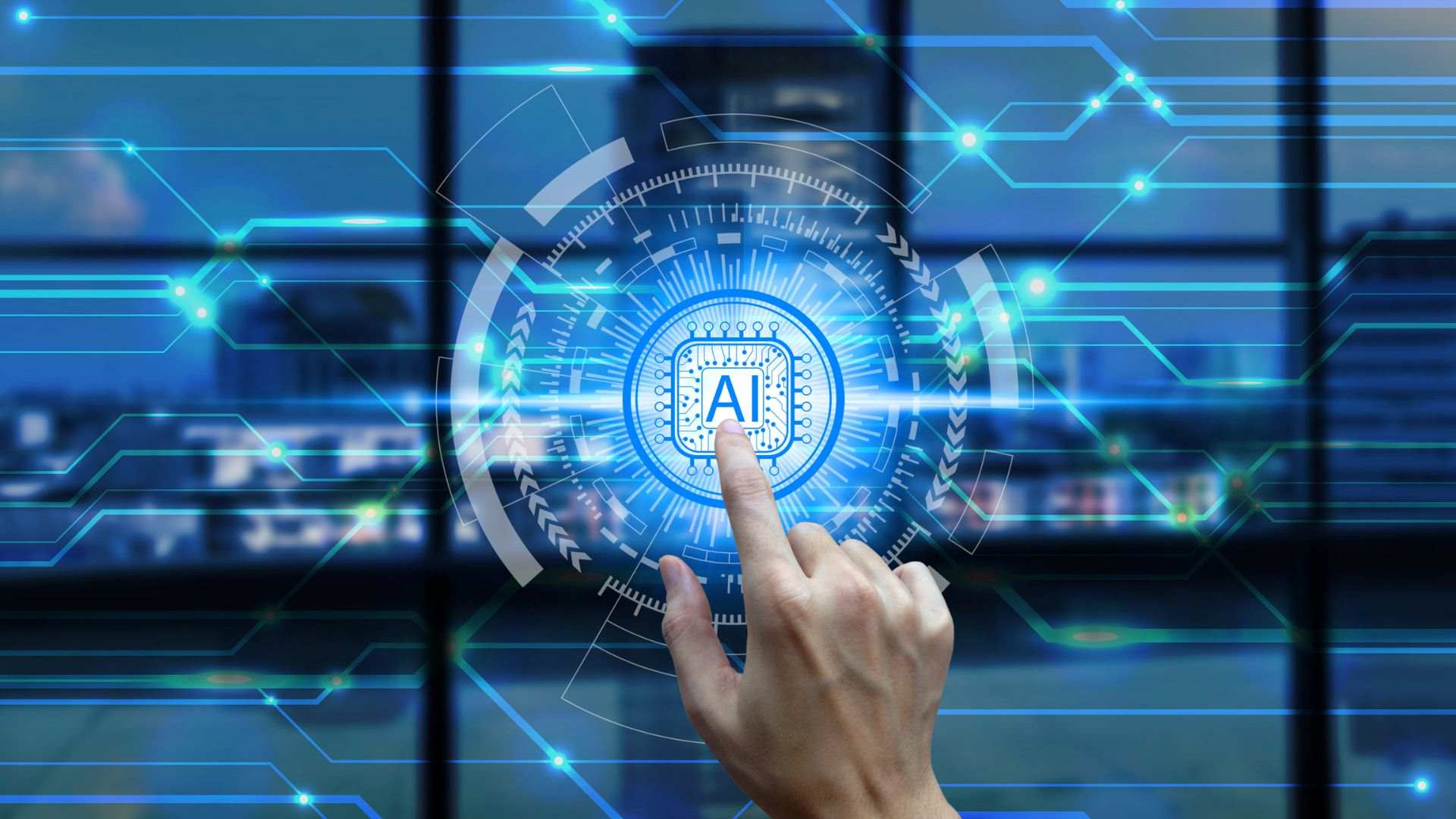
MC: At the Hanoi Employment Service Center, how do you feel that AI and digital technology have affected workers, businesses, and the current recruitment process?
Mr. Vu Quang Thanh - Deputy Director of Hanoi Employment Service Center: AI and digital technology are both promoting development and putting pressure on workers, posing many opportunities and challenges.
For workers, they have the opportunity: Labor productivity increases thanks to AI supporting calculation, data processing, automation of many complex stages. Thereby, workers are free from repetitive jobs, have more time to be creative; bring new jobs.
However, workers face challenges: Unskilled workers and low-skill workers do not have digital skills, so the digital gap is getting larger between workers with technology skills and those with limited access to technology.
For businesses, when applying AI, operating costs will be reduced thanks to automation, robots, and smart management systems.Increase domestic and international competitiveness when applying AI.
However, businesses face challenges: The demand for high-quality human resources exceeds market supply capacity, causing a shortage of digital labor.The initial cost of training and digital transformation is quite large, especially for small and medium enterprises.
The impact of AI and digital technology is very clear for workers and businesses. At the Hanoi Employment Service Center, we have applied AI to score employees' CVs; used Chatbot to support employees, automatically answer employees. Many businesses today also conduct AI interviews to score candidates.
MC: Ms. Thanh Nguyen - CEO of Anphabe Joint Stock Company - said that according to the company's research, more than 78% of businesses in the world have applied AI to at least 1 business function in 2024? Mr. Ha Anh Tuan, do you think that by the end of 2025, the 78% will increase to what percentage?
Mr. Ha Anh Tuan: The average AI growth rate in the world is about 100%/year. In fact, AI applications are not too super-high because there are tasks that will be very easy to use and many people can easily access.
When we provide training on AI, large companies in Vietnam place orders for updates for each employee, to each person, not a general requirement for the entire enterprise.
A survey at businesses shows that up to 98% of employees have used AI. AI is present around us, even when searching for information on Google, AI also helps answer.
The trend of businesses using AI is popular. The things that AI impacts immediately and directly are in data analysis activities, from AI activities in reporting, commenting...
I predict that by the end of 2025, the number of AI-applied enterprises will increase by at least 10%.
In our country today, the Government is continuously upgrading the information technology platform, digital transformation... towards the people and the Government directly "talking" to each other.
MC: In fact, there will be some jobs and occupations that are "inflated" by AI, but besides that, many jobs that human resources take on will be much more leisurely, while labor productivity will increase thanks to AI. Are you optimistic about whether this is and where the most "risk" sectors are, which are the most "promising"?
- Mr. Ha Anh Tuan: We have been monitoring for 3 years now, AI will make some industries disappear. For example, product testing staff are now replaced by AI cameras. In many countries, aviation security has now applied AI. Office secretary now records AI. Telesale is also not necessary.
The human resource management and recruitment sectors used to have to interview directly. Major corporations in the world now have AI to interview online, candidates submit AI documents to classify...
The group that looks up documents, sells goods online... is also at high risk. AI can now live stream sales...
The analytical, classification, synthesis sectors will be most affected.
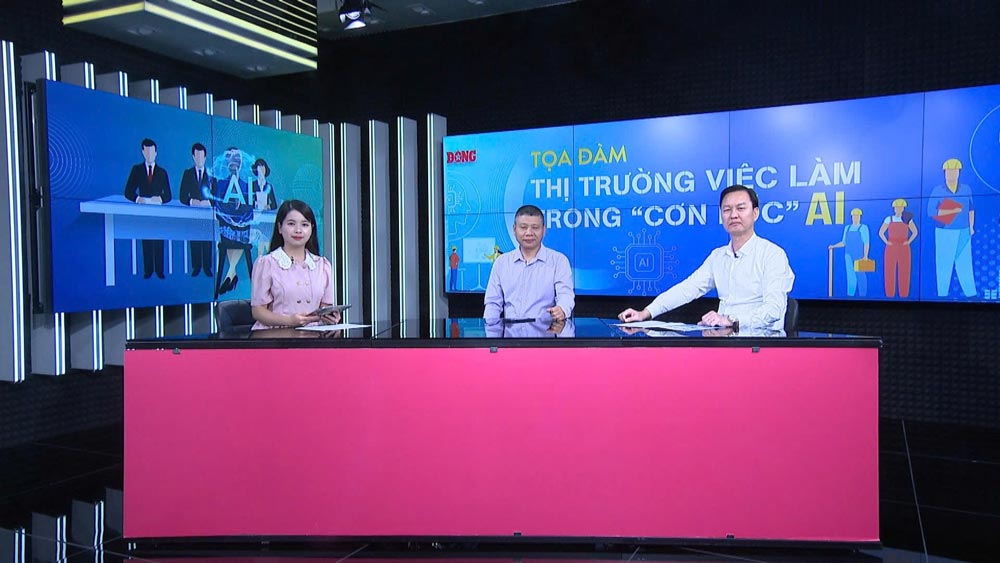
However, in reality, every industry is affected by AI.
For example, Google's human resources are now graded with AI. AI can suggest which personnel should terminate the contract...
In the future, AI will be applied more in life, in all fields such as surgery, testing, cancer diagnosis, etc. The more the world moves forward, the deeper AI penetrates in all fields.
Mr. Vu Quang Thanh - Deputy Director of Hanoi Employment Service Center: Currently, any field is easily affected by AI, and jobs can be replaced. The most risk occupations that are easily replaced by AI include:
Repeat the profession, the process: data entry, file processing, elementary accounting, basic content censorship.
Production industry, unskilled labor: simple line work, warehousing, loading and unloading, quality control.
Basic service industry: online customer care according to the scenario, phone sales, low-level technical support.
Some primary creative fields: writing simple advertising content, basic translation, and designing pre-made sample graphics.
The most "promising" industries, AI is difficult to replace, and even thrive thanks to AI:
Technology and data: AI expert, data analyst, cybersecurity, software engineer.
Health care and health care: doctors, nurses, pharmacists - AI support diagnosis, but humans decide and interact with patients.
Education and training: AI can provide tools, but the role of a teacher in orienting, inspiring and teaching soft skills is still essential.
* MC: Ladies and gentlemen, before entering the seminar, I would like to invite you and the guests to watch a video clip made by Lao Dong Newspaper.
Mr. Ha Anh Tuan, do you have any assessment of the challenges for workers after watching the clip made by us?
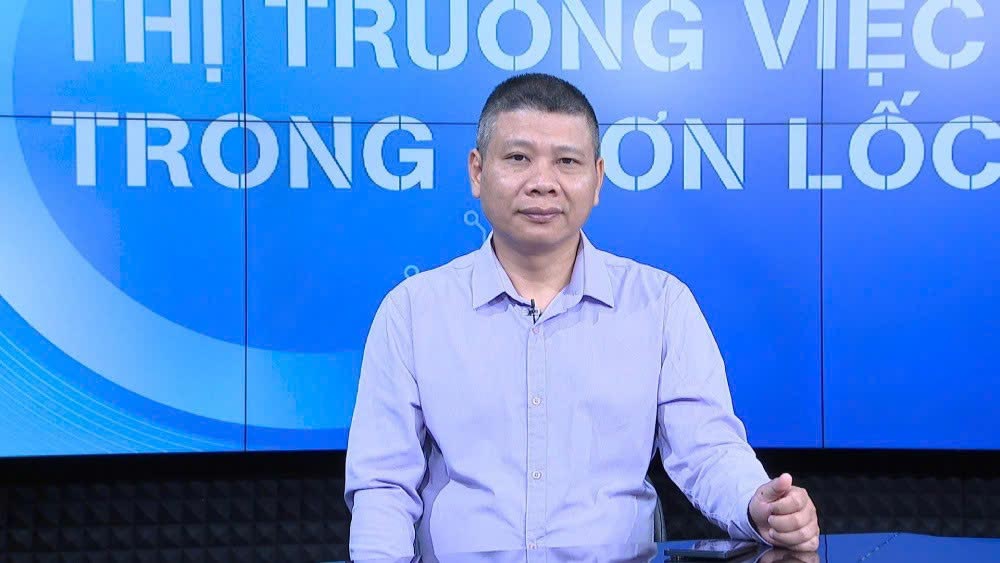
Mr. Ha Anh Tuan: The biggest challenge is that workers in some industries will be cut.
In fact, the high-yield banking industry still cuts its staff, many other industries will also cut their staff.
The risk is classified between the two labor forces. The group of workers who know AI will be recruited and promoted; the group who do not know AI will not integrate and be cut off.
Mr. Vu Quang Thanh - Deputy Director of Hanoi Employment Service Center - assessed the challenges for workers due to the profound impact of digital technology and artificial intelligence:
As a unit that regularly approaches businesses and workers, and through information collection, I see that AI and digital technology have a strong impact on the labor market in general and Vietnam is not an inevitable thing.
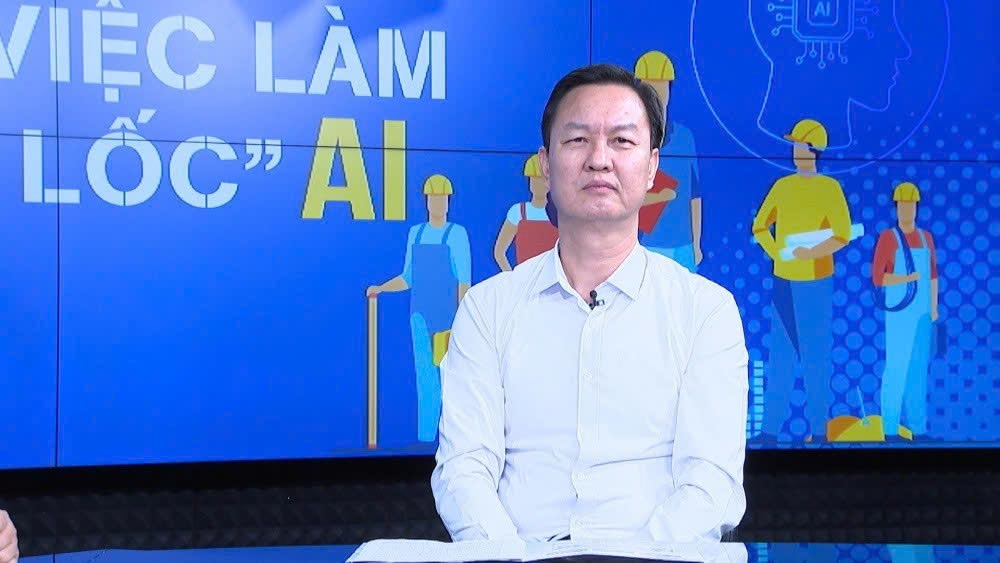
Currently, most economic sectors have applied AI, bringing efficiency, Thus affecting job positions. That vulnerable force is unskilled labor, but there is a class of labor with qualifications, digital skills, and AI that is promoted for development. This will divide the two streams clearly. This will lead to great challenges for workers with limited qualifications, who have not updated AI and digital technology.
Even if the workforce is qualified, if it does not update regularly, it may still fall into unemployment because of the demands of businesses for AI and digital skills that need to be constantly updated.
However, besides the lost work, digital technology brings the market many new jobs. This is an opportunity for employees to have a specific orientation for their future and their professional position.

Never before has the phrase digital technology, digital transformation, AI... been mentioned as much in all areas of life.
In the field of labor and employment, reality shows that not only unskilled workers have unstable job opportunities, but even skilled people who have received training are at risk of losing their jobs due to AI.
Lao Dong Newspaper will work with experts to analyze in depth the impact of digital technology and artificial intelligence on life, economy, and society, especially during the period of deep integration, and how to maintain jobs and stabilize the labor market in the context of strong impacts of the technological revolution, the AI wave, etc.
The exchange guests were Mr. Vu Quang Thanh - Deputy Director of Hanoi Employment Service Center; Mr. Ha Anh Tuan - CEO of Vinalink Company.
The program was organized by Lao Dong Newspaper, reported on Lao Dong Electronic Newspaper (laodong.vn) on the morning of August 27, 2025.



